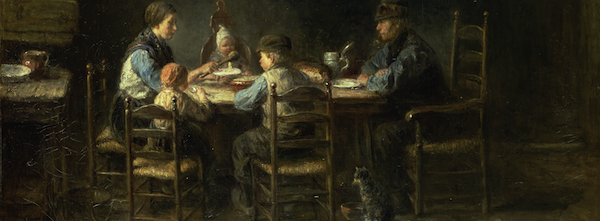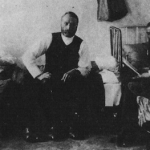In a recent New Yorker article “The Case Against Empathy,” Paul Bloom warns us against using empathy – the act of putting oneself in another’s shoes – as our primary moral guide. Empathy indeed aids us in our personal relationships and in cases, such as the Newtown shootings, where there is an identifiable victim, but it does not help us to respond to other situations where victims are unidentifiable (e.g. tax evasion), or when temporarily shelving our empathy is necessary (e.g. disciplining children).
What moves us towards good deeds when our emotional well of empathy has run dry? Bloom suggests “reason,” implying that perhaps what we need is better training in dispassionately and rationally evaluating moral situations. In light of the recent discussion at Fare Forward over the importance of living in places with dense social bonds, I offer another source: relational duty.
One of the touted social benefits of living, working, shopping, learning and praying within a small radius is that it is easier to empathize with, and thus love, your “neighbor,” whether it is your physical neighbor, grocer, pastor, or coworker. But no one talks about what happens if your neighbor and you don’t get along. In areas with high population density, there may be little escape as, due to the close proximity, it is almost impossible to avoid him or her. Dense social bonds cut both ways.
But perhaps the fact that it is impossible to avoid your neighbor is the kind of accountability that we need. A knee-jerk dose of empathy moves us to donate funds to the victims of Newtown or the Boston Marathon shootings, and then we can calmly go about the rest of the week, unperturbed by the people we have just helped. But to act kindly towards people who are firmly interwoven in our lives, for better or for worse, forces us to draw on more than a fleeting sense of empathy. It forces us to draw from a sense of duty, one shaped by the bonds that tie us together.
We tend to do this with our family members when we lived under the same roof. Conflicts could not be simply swept under the rug and ignored because we interacted with each other daily. The choice was forced upon us: either we kept ignoring the conflict and perpetuated the tension indefinitely, or we addressed it and cleared the air. Either way, we had to keep living with each other, and the choice was ours as to what kind of relationship we wanted to have.
Bloom is on the right track when he calls for moral resources other than empathy, for it tends to be fickle and unstable. Turning inward, he identifies “reason” as a better resource. The moral life is essentially a struggle to bring the passions under the guidance of reason. And if we turn outward, we may find that “relational duty,” one cultivated in spaces of tight proximity, is a fruitful avenue for doing that.
[Image of peasant family from Wikipedia]













